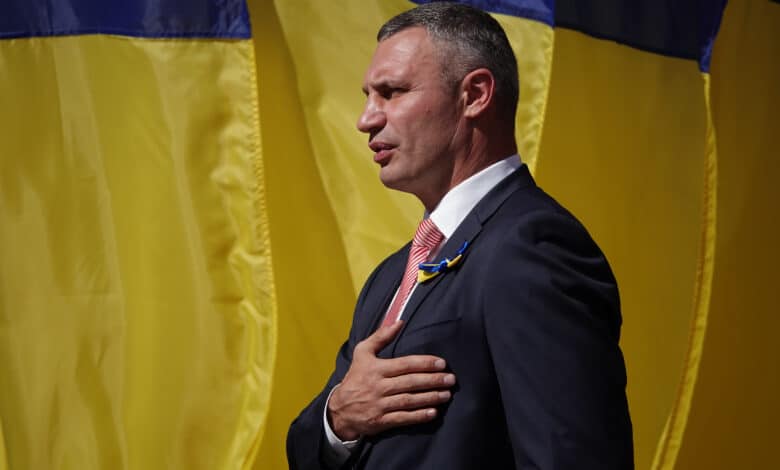
Berlin’s mayor spoke in a video conference with a person claiming to be Vitali Klitschko. The deep fake was not noticed at first, but the course of the conversation gave rise to doubts about the identity of the interlocutor, according to the Berlin State Chancellery.
Conversation was arranged in early June
The Berlin State Chancellery said that a conversation between Giffey and Klitschko had been arranged in early June. However, how exactly the connection between Giffey and the deep-fake fraudster has now come about in concrete terms is as yet unknown. The only thing that has become known is that a fake Klitschko also reported to the mayors of Madrid and Vienna.
The incident became known through a communication from the State Chancellery. This contained not only information on the course of the conversation, but also a photo of a screen showing the video conference between Giffey and the pretend Klitschko. According to the state chancellery, the conversation was broken off by Giffey after half an hour because the course of the conversation was suspicious. According to this, they first talked about the situation of refugees from Ukraine in Berlin, before the fake Klitschko urged Berlin to work towards sending Ukrainian men, who are currently in the German capital, to fight in Ukraine. Furthermore, according to the Frankfurter Allgemeine Zeitung, the fake Klitschko asked whether the fraudulent use of social benefits by Ukrainian refugees was not a problem for Berlin and how best to organize a Christopher Street Day in Kiev. A recording of the conversation has not yet been released.
Conversation took place in Russian
Vitali Klitschko himself has commented on the incident depicted in the Bild newspaper. There he stated, among other things, that he did not rely on a translation when talking to German- or English-speaking counterparts. In fact, the fake Klitschko asked to conduct the conversation in Russian and have it translated. Giffey did not find this suspicious, even though Klitschko is known to speak German. On Twitter, Giffey wrote: “At the beginning of the conversation, it was asked whether it could take place in Russian + translated, since other non-German-speaking female employees were also present, who should understand what was discussed.”
Who is behind the deepfake is not known. However, the desire to have the conversation in Russian may provide initial clues as to the location and intent of those behind the act.
State Protection is investigating
Meanwhile, the State Protection of the Berlin Criminal Investigation Department has begun investigating and is trying to clarify the background of the incident. Vienna’s mayor, who also fell for the fake Klitschko and, unlike Giffey, did not end the conversation prematurely, on the other hand, does not see a major problem in the use of a deep fake: “After no captious topics were dealt with in the conversation, this is certainly annoying in the specific occasion, but not a major problem.”
However, Vienna’s mayor Ludwig thus overlooks the explosive power that deep-fake technology brings with it: In a mature form and combined with sophisticated deception techniques, it is sufficient to penetrate to central offices of a state and present there alleged concerns of well-known personalities – which is highly problematic, especially in the current war situation. Correspondingly, Giffey expressed herself on Twitter: “Unfortunately, it is part of the reality that war is being waged by all means – including on the net, in order to undermine trust and discredit partners and allies of Ukraine using digital methods.” The possibilities of creating a deceptively genuine deep fake from just a few images of a person have grown enormously in recent years. For example, a Russian Samsung team introduced a corresponding technology in 2019.
Even beyond deep fakes, the Ukraine war is characterized by digital warfare. One example is the GPS blockade in Ukraine by Russia.



